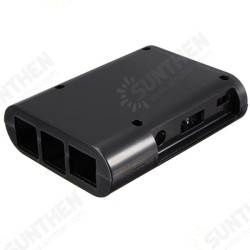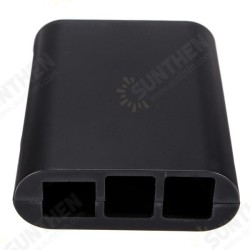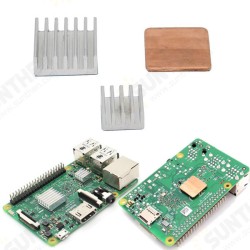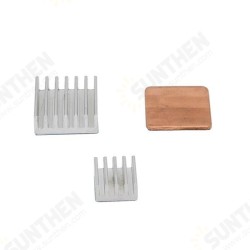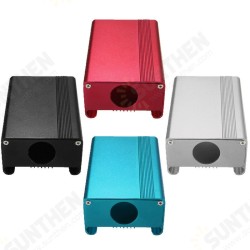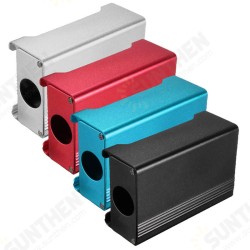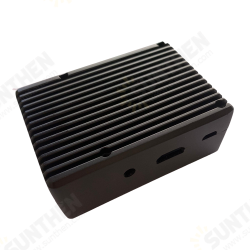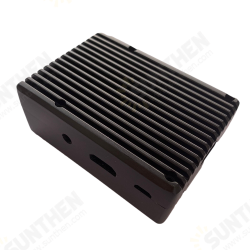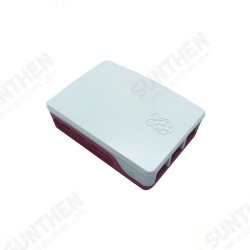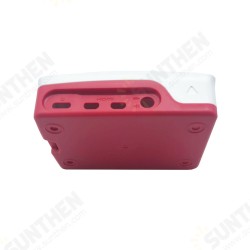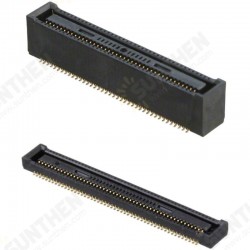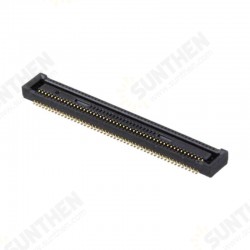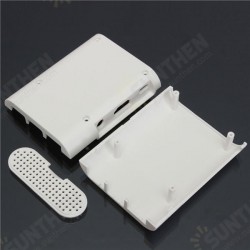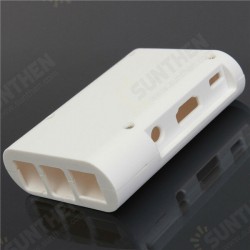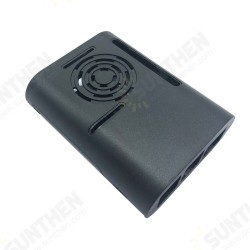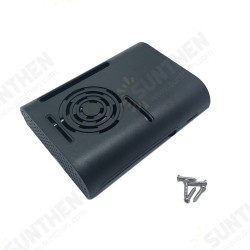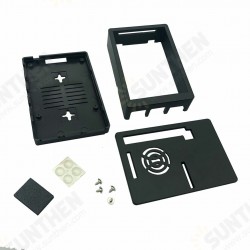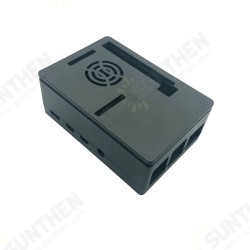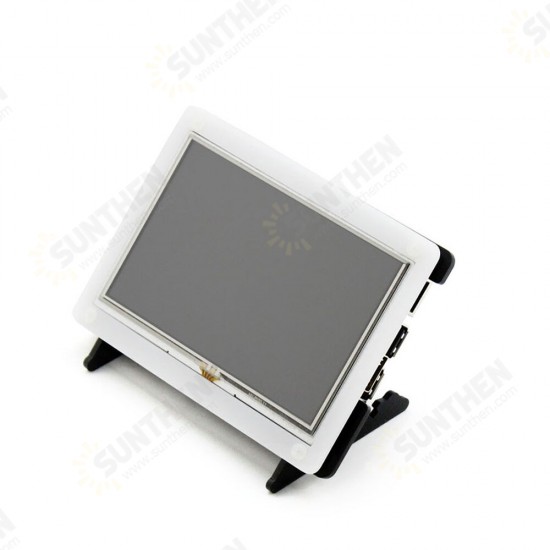
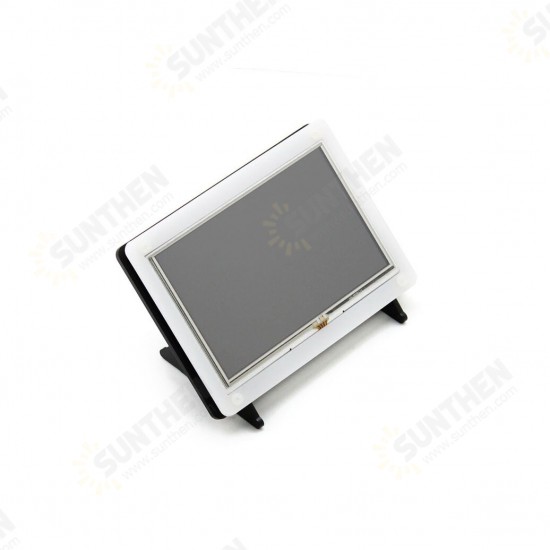
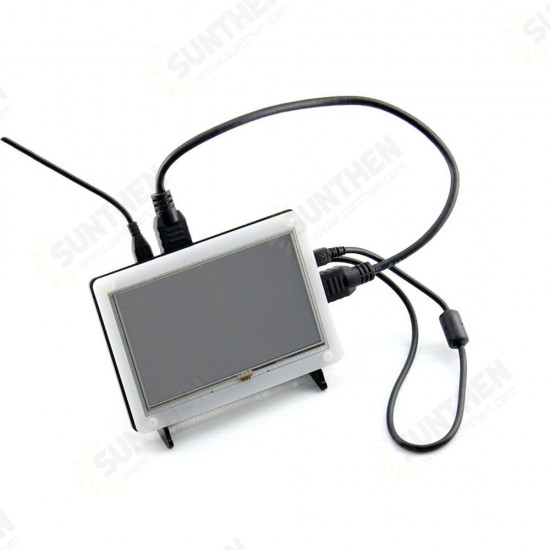
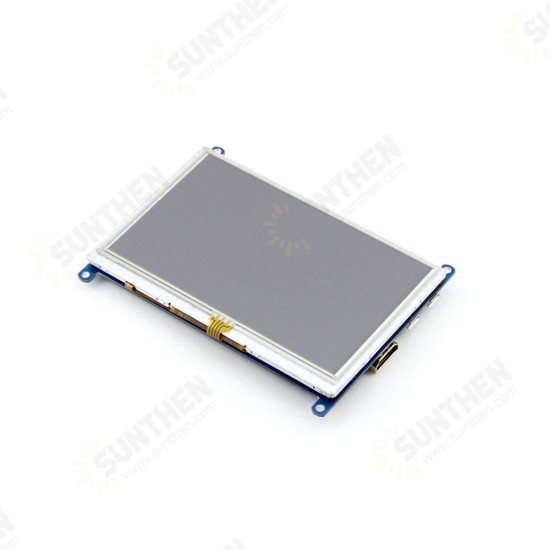
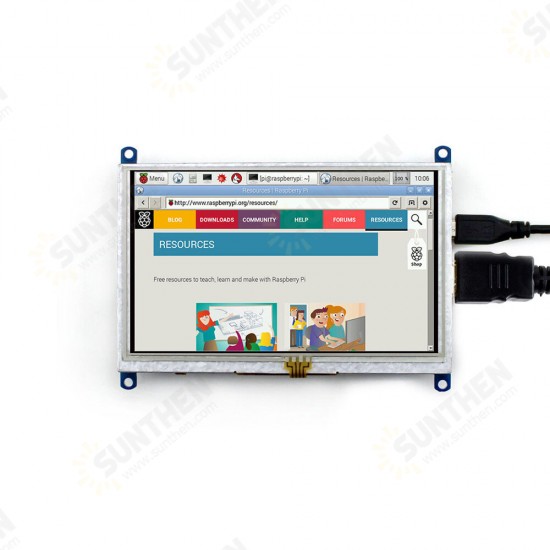
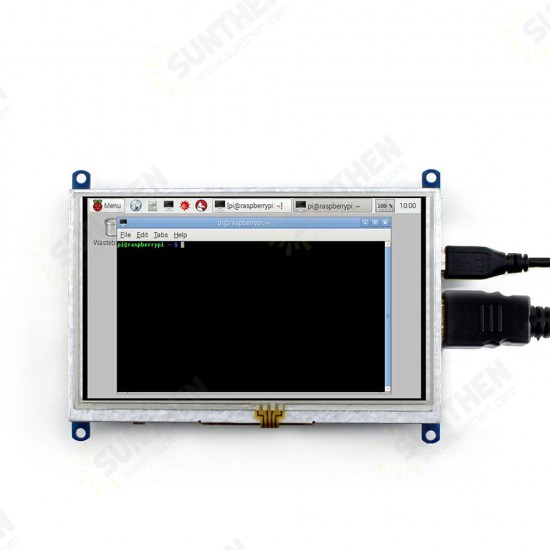
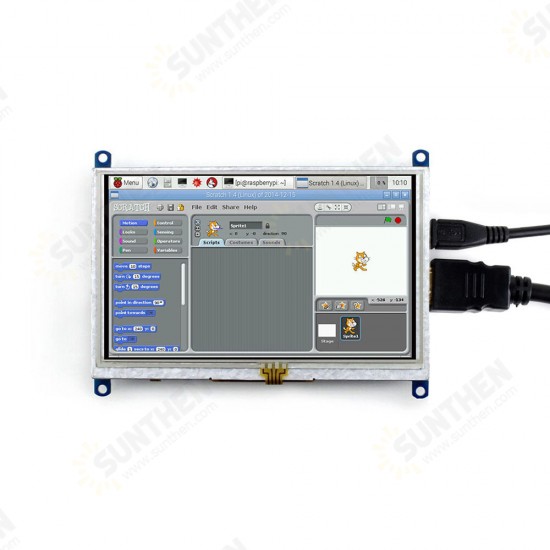
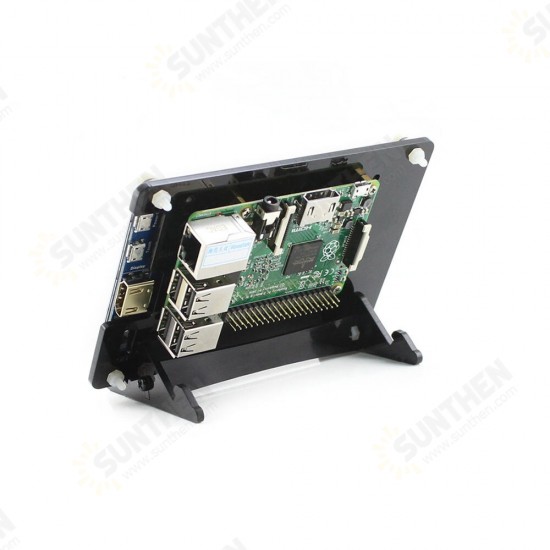
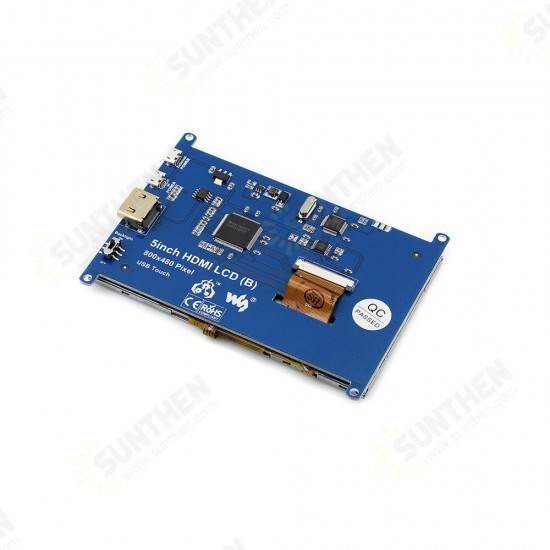









- Stock: In Stock
- Model: ST220031045
- SKU: ST220031045
The LCD:
800x480 high hardware resolution
Resistive touch control
Supports popular mini PCs such as Raspberry Pi, BB Black, and general desktop computers.
When working with Raspberry Pi, supports Raspbian/Ubuntu/Kali/Retropie/WIN10 IOT, driver free
When working as a computer monitor, supporting Windows 10/8.1/8/7, single touch, and driver free
Backlight can be turned off to lower power consumption
Note: to use the LCD with the following mini-PCs, additional cables are required and should be purchased separately:
Raspberry Pi Zero: HDMI cable, USB-type-A-receptacle-to-Micro-B-plug-cable
BB Black: HDMI cable
The Case:
This case will combine the touch screen LCD and Pi into an All-in-one device.
For use with : 5inch HDMI LCD (B)
Material : high quality bicolor Acrylic, black and white
Comes with bottom holder, optional tilt angle, 45° or 60°
Features mounting holes for Raspberry Pi B/A+/B+/2B/3B/3B+, Banana Pro
For more info, please check the wiki page.
PackageIncluded: (The Raspberry Pi not included)
5inch HDMI LCD (B) x 1
HDMI cable x 1
HDMI to Micro HDMI Adapter x 1
USB type A plug to micro B plug cable x 1
Touch pen x 1
RPi screws pack (4pcs) x 1
Quick start sheet x1
FAQ:
● Why doesn't the LCD work with my Raspbian?
To use the LCD with the Raspberry Pi official image, driver (SPI touch interface only) should be installed first. Please refer to the user manual.
However, for the first testing, you may want to use our image directly (if provided).
● Why doesn't the LCD still work with the Waveshare provided image?
Make sure the hardware connection is correct and connects well.
Make sure the image in the TF card is burnt correctly.
When the Raspberry Pi starts successfully, the PWR will remain on and the ACT will remain blinking. If both LEDs remain on, the image may be wrong or the TF card may be in poor contact.
● Which power supply should I use?
It is recommended to use a 5V/3A power adapter for the Raspberry Pi other than USB connection, otherwise the Pi may fail to start up because the PC's USB port might not have enough power.
For large size LCDs, say, 10inch diagonal or more, another stand-alone power adapter is also required to provide power to the LCD.





